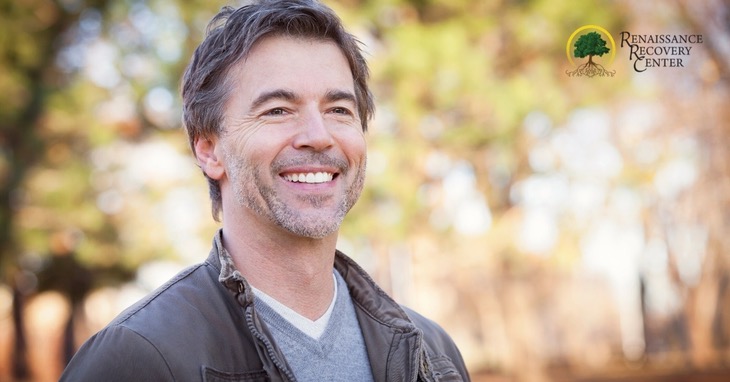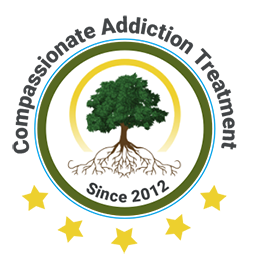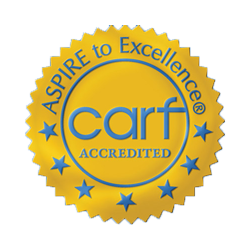Waking up each day with the weight of regret, shame, or fear tied to alcohol or substance use is exhausting. You want to quit — but the how feels overwhelming. You’re not looking for judgment; you’re looking for a way out that makes sense, feels safe, and actually works.
If you’re in Gilbert, Arizona, or anywhere else and quietly struggling with addiction, you’re not alone. The journey to sobriety can be simpler — and more empowering — than you think.
In this post, we’ll walk you through the 7 steps of sobriety: what they mean, how they work, and how to take the first one.
What We’ll Cover in This Guide
- What Are the 7 Steps of Sobriety?
- Why These Steps Work (Even When Others Haven’t)
- How to Start — Even If You're Not Ready
- Common Questions About Sobriety
- Explore Support Options in Arizona
Discovering the 7 Steps of Sobriety
These steps provide a clear framework to help people rebuild their lives — emotionally, mentally, socially, and spiritually.
Here’s a simplified breakdown:
⇒ Admit the Problem ExistsAcknowledge that substance use is negatively affecting your life and health.
⇒ Reach Out for HelpWhether it’s a therapist, outpatient program, or trusted friend — connection is key.
⇒ Build a Support SystemSurround yourself with people who understand or have walked the same path.
⇒ Identify Triggers & PatternsLearn what situations or emotions lead to use — and how to navigate them.
⇒ Develop Coping StrategiesReplace harmful habits with healthy, healing alternatives.
⇒ Make Amends & RebuildBegin healing damaged relationships, including with yourself.
⇒ Commit to Lifelong GrowthSobriety isn’t just about quitting — it’s about rediscovering who you are.
These steps are often inspired by — but not limited to — traditional 12-Step principles. They're flexible, adaptable, and proven to support long-term recovery.
Why the 7 Steps Can Work When Other Approaches Fail
Many people try to quit "cold turkey" or hide their struggle. But willpower alone isn't enough — you need a system of support.
Here’s why these steps are powerful:
- They’re emotionally honest and non-linear (relapse doesn’t mean failure).
- They build both awareness and resilience.
- They’re backed by thousands of recovery stories — and clinical best practices.
At Renaissance Recovery Center, we’ve guided hundreds of individuals through their recovery with this very approach — offering support that’s structured, but never rigid.
Taking the First Step Toward Sobriety (Even If You're Unsure)
Taking the first step doesn’t require certainty — just curiosity.
Start here:
⇒ Ask yourself: “What would sobriety give me back?”
⇒ Talk to someone you trust. This could be a loved one or a recovery specialist.
⇒ Try an assessment. We offer confidential outpatient evaluations that can help you explore options without pressure.
Prefer privacy? Our individual Tele-Therapy options are flexible and accessible from anywhere.
Frequently Asked Questions About Sobriety
Local Help: How Renaissance Recovery Center Supports You
You don’t have to figure this out alone. At Renaissance Recovery Center in Gilbert, Arizona, we’re here to meet you exactly where you are.
We offer:
- Flexible outpatient treatment
- One-on-one Tele-Therapy
- 24/7 compassionate support
Ready to take the first small step? Explore Our Programs or Get in Touch Today.
Moving Forward with Confidence in Recovery
Sobriety isn’t just about quitting — it’s about reclaiming your life. The 7 steps offer a practical, human-centered path forward. Whether you’re newly curious about recovery or searching for a better way after relapse, you deserve support that works.
Take that next step. Learn. Ask. Heal. You’re not alone.
Reach Out to Renaissance Recovery Center
Related Resources and Deeper Recovery Support
Learn more about our Intensive Outpatient Program (IOP) or explore how our tele-therapy for addiction works for those needing private, remote help.
You can also check out our guide:
5 Most Effective Drug & Alcohol Treatments
How to Support a Spouse in Alcohol Recovery






















